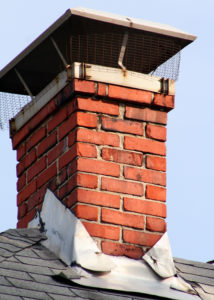 We see a lot of different weather patterns here in the Philadelphia area. Spring often brings high winds and a lot of rain; summer introduces high heats and evening thunderstorms; fall weather begins to cool and is often windy; and winter often brings a lot of ice, snow, and winds. Our homes take quite a lot of abuse from the elements throughout the year, and so do our chimneys. Many homeowners don’t realize how much potential damage their chimney takes each year, so that’s what I wanted to focus on in today’s blog.
We see a lot of different weather patterns here in the Philadelphia area. Spring often brings high winds and a lot of rain; summer introduces high heats and evening thunderstorms; fall weather begins to cool and is often windy; and winter often brings a lot of ice, snow, and winds. Our homes take quite a lot of abuse from the elements throughout the year, and so do our chimneys. Many homeowners don’t realize how much potential damage their chimney takes each year, so that’s what I wanted to focus on in today’s blog.
Deterioration of Masonry Chimneys
Masonry chimneys may be constructed from a variety of materials including block, brick, stone, concrete, and mortar. Each of these materials, with the exception of stone, is damaged by water penetration. Water will cause serious deterioration of masonry chimneys over time and it must be addressed before it becomes a serious problem.
Water Penetration and the Freeze-Thaw Process
Brick, block, concrete, and mortar are made of porous materials. Water seeps into the little holes and cracks and becomes trapped. The trapped water freezes over time and threatens to break the chimney. Sealants may be used to protect the chimney from water penetration, but these sealants must be applied on a regular basis. Any lapse in maintenance creates a potentially dangerous situation for your chimney.
Here are some serious problems caused by water penetration:
- Rotting wooden supports
- Deteriorated firebox assemblies
- Rusted damper assemblies
- Water stains on the ceiling or walls
- Deterioration in the central heating system
- Stained or decayed chimney exterior
- Collapsed chimney and hearth support
- Settlement, tilting, or collapsing of the chimney structure itself
How Can You Prevent Water Damage to Your Masonry Chimney?
Maintenance measures may be taken to reduce the amount of water that actually penetrates the materials from which your chimney is made. I mentioned masonry sealants earlier in the post. Here are a few other great ways to protect your masonry chimney:
- Chimney caps
- Chimney flashing
- Chimney crown
- Yearly maintenance
- Cricket (water deflector)
Schedule a yearly inspection to make sure your chimney isn’t falling prey to elemental damage. Water damage destroys chimneys, but it is possible to catch the damage early and address the root cause. A certified chimney sweep can inspect the entire structure and plan a course of action that will prevent further deterioration and ensure that your chimney works as intended for many years to come.
Be careful out there; I’ve talked about fraudulent chimney sweeps in previous blog posts. I was also featured on a local news station as an expert in my field due to my many years of helping homeowners with all of their chimney needs. My goal is to ensure the safety of your chimney and help educate you on how you can maintain your masonry chimney on your own. This doesn’t mean you won’t need to call me for a yearly inspection, it simply means that you will be more independent with the maintenance of your chimney.
